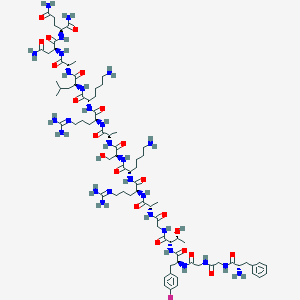

You can:
| Name | Nociceptin receptor |
|---|---|
| Species | Homo sapiens (Human) |
| Gene | OPRL1 |
| Synonym | Orphanin FQ receptor OP4 NOPr NOP-r NOP receptor [ Show all ] |
| Disease | Inflammatory disease Major depressive disorder Central nervous system disease Heart failure Anxiety disorder [ Show all ] |
| Length | 370 |
| Amino acid sequence | MEPLFPAPFWEVIYGSHLQGNLSLLSPNHSLLPPHLLLNASHGAFLPLGLKVTIVGLYLAVCVGGLLGNCLVMYVILRHTKMKTATNIYIFNLALADTLVLLTLPFQGTDILLGFWPFGNALCKTVIAIDYYNMFTSTFTLTAMSVDRYVAICHPIRALDVRTSSKAQAVNVAIWALASVVGVPVAIMGSAQVEDEEIECLVEIPTPQDYWGPVFAICIFLFSFIVPVLVISVCYSLMIRRLRGVRLLSGSREKDRNLRRITRLVLVVVAVFVGCWTPVQVFVLAQGLGVQPSSETAVAILRFCTALGYVNSCLNPILYAFLDENFKACFRKFCCASALRRDVQVSDRVRSIAKDVALACKTSETVPRPA |
| UniProt | P41146 |
| Protein Data Bank | 5dhh, 5dhg, 4ea3 |
| GPCR-HGmod model | P41146 |
| 3D structure model | This structure is from PDB ID 5dhh. |
| BioLiP | BL0328039,BL0328040, BL0328041,BL0328042, BL0227293,BL0227294 |
| Therapeutic Target Database | T52921 |
| ChEMBL | CHEMBL2014 |
| IUPHAR | 320 |
| DrugBank | BE0002378 |
| Name | CHEMBL264846 |
|---|---|
| Molecular formula | C79H129FN28O21 |
| IUPAC name | (2S)-2-[[(2S)-4-amino-2-[[(2S)-2-[[(2S)-2-[[(2S)-6-amino-2-[[(2S)-2-[[(2S)-2-[[(2S)-2-[[(2S)-6-amino-2-[[(2S)-2-[[(2S)-2-[[2-[[(2S,3R)-2-[[(2S)-2-[[2-[[2-[[(2S)-2-amino-3-phenylpropanoyl]amino]acetyl]amino]acetyl]amino]-3-(4-fluorophenyl)propanoyl]amino]-3-hydroxybutanoyl]amino]acetyl]amino]propanoyl]amino]-5-(diaminomethylideneamino)pentanoyl]amino]hexanoyl]amino]-3-hydroxypropanoyl]amino]propanoyl]amino]-5-(diaminomethylideneamino)pentanoyl]amino]hexanoyl]amino]-4-methylpentanoyl]amino]propanoyl]amino]-4-oxobutanoyl]amino]pentanediamide |
| Molecular weight | 1826.07 |
| Hydrogen bond acceptor | 27 |
| Hydrogen bond donor | 28 |
| XlogP | -9.2 |
| Synonyms | N/A |
| Inchi Key | LBHPHSQWJHMNGV-QMLOSLAFSA-N |
| Inchi ID | InChI=1S/C79H129FN28O21/c1-40(2)32-54(73(125)97-43(5)67(119)105-56(35-59(85)112)74(126)100-49(64(86)116)26-27-58(84)111)106-71(123)50(18-10-12-28-81)103-70(122)53(21-15-31-92-79(89)90)102-66(118)42(4)98-76(128)57(39-109)107-72(124)51(19-11-13-29-82)104-69(121)52(20-14-30-91-78(87)88)101-65(117)41(3)96-61(114)38-95-77(129)63(44(6)110)108-75(127)55(34-46-22-24-47(80)25-23-46)99-62(115)37-93-60(113)36-94-68(120)48(83)33-45-16-8-7-9-17-45/h7-9,16-17,22-25,40-44,48-57,63,109-110H,10-15,18-21,26-39,81-83H2,1-6H3,(H2,84,111)(H2,85,112)(H2,86,116)(H,93,113)(H,94,120)(H,95,129)(H,96,114)(H,97,125)(H,98,128)(H,99,115)(H,100,126)(H,101,117)(H,102,118)(H,103,122)(H,104,121)(H,105,119)(H,106,123)(H,107,124)(H,108,127)(H4,87,88,91)(H4,89,90,92)/t41-,42-,43-,44+,48-,49-,50-,51-,52-,53-,54-,55-,56-,57-,63-/m0/s1 |
| PubChem CID | 44388460 |
| ChEMBL | CHEMBL264846 |
| IUPHAR | N/A |
| BindingDB | N/A |
| DrugBank | N/A |
Structure |  |
| Lipinski's druglikeness | This ligand has more than 5 hydrogen bond donor. This ligand has more than 10 hydrogen bond acceptor. This ligand is heavier than 500 daltons. |
| Parameter | Value | Reference | Database source |
|---|---|---|---|
| EC50 | 0.06607 nM | PMID15743186 | ChEMBL |
| EC50 | 0.309 nM | PMID15743186 | ChEMBL |
| Emax | 11.42 - | PMID15743186 | ChEMBL |
| Emax | 101.0 % | PMID15743186 | ChEMBL |
| Ki | 4.57088e+19 nM | PMID15743186 | ChEMBL |
zhanglab![]() zhanggroup.org | +65-6601-1241 | Computing 1, 13 Computing Drive, Singapore 117417
zhanggroup.org | +65-6601-1241 | Computing 1, 13 Computing Drive, Singapore 117417